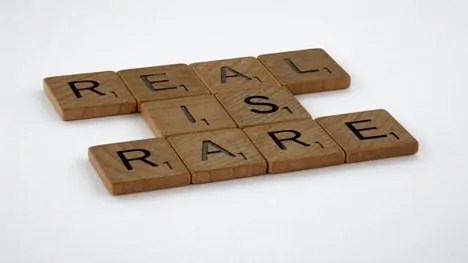
Photograph by Brett Jordan on Unsplash
Move along when the crowd is right
Stand alone when the crowd is wrong
From the song ‘What Was That’
By John Gorka
I am grateful for the recent opportunity to peruse the exhibits of two artists at the Philadelphia Museum of Art. The works of Emma Amos and Jasper Johns could not have been more different from one another, except in one respect.
Each artist expressed their distinctive perspectives and values in uniquely personal ways. They redefined what could be considered art in terms of their subjects and through their means and methods.
Taking courageous stands and challenging the status quo, Amos and Johns were products of their communities yet were not defined by them.
Their lives and legacies stand in sharp contrast to much of what I witness and experience in our country today, in which affiliation and association identification rule the day. Adopting groupthink and vilifying others have become stand-ins for fully realized identities and pursuing one’s purpose.
How real do you need to be? What risks are you willing to take on behalf of yourself and others?
Your answers depend on how essential living a life with fewer regrets is to you.
“Deciding whether you will be defined or informed by your associations has consequences – one restricts choice; the other expands it.”
A recent Gallup poll determined that the strongest correlation of agreeing with a political position or decision has significantly more to do with the party initiating it than the stance or choice made. Higher than it has ever been, ouch!
Stunned to hear an acquaintance declare he agreed with the entire platform of one of our major political parties. Knowing how platforms are assembled, I wondered how anyone could turn their free will over to another entity, dulling themselves in the process.
As a new member of a company’s leadership team, I was startled to find it had outsourced its high-level strategy to an outside vendor. Didn’t they realize that was leadership’s responsibility?
We brought the strategy-making back in-house and advanced it further while cutting the budget by more than half.
Isn’t that our individual responsibility too? How does abdicating accountability for our decision-making and actions serve us? Can we truly do it, or is it a fake-out?
I admire leaders who take the challenging path, knowing it is not always easy. Despite the risks, they trust their choice to be abidingly worthwhile.
Earlier in his Delta Airlines career, CEO Ed Bastion vehemently disagreed with a leadership decision. After successfully negotiating significant salary concessions from its pilots’ union, Delta’s executive team decided to pay itself bonuses.
He left the company because the decision violated his values. Bastion was recruited back later as CFO and eventually made CEO.
“Living an authentic life has consequences and sometimes demands risking your sense of belonging.”
It is critical to remember; people regret the risks they failed to take on their deathbeds, not the ones they do take.
Exactly whose life do you want to live?
Be rare, live the life you want, and leave the legacies you intend.
Key Take-aways:
- Artists remind us of the creative possibilities in our own lives.
- Belonging is crucial, however, not if the community requires you to relinquish yourself to fit in.
- Victimization and grievance represent false replacements for healthy identities and meaningful purposes; they will not provide you with helpful directional beacons.
- In the end, people regret the risks they failed to take, not the ones they take.
- It is rare to live the life you want and to leave the legacies you intend. Be rare.
If you want to increase your authenticity and live a life with fewer regrets for the benefit of yourself, your team, and your organization, please reach out to me. I welcome the connection.
